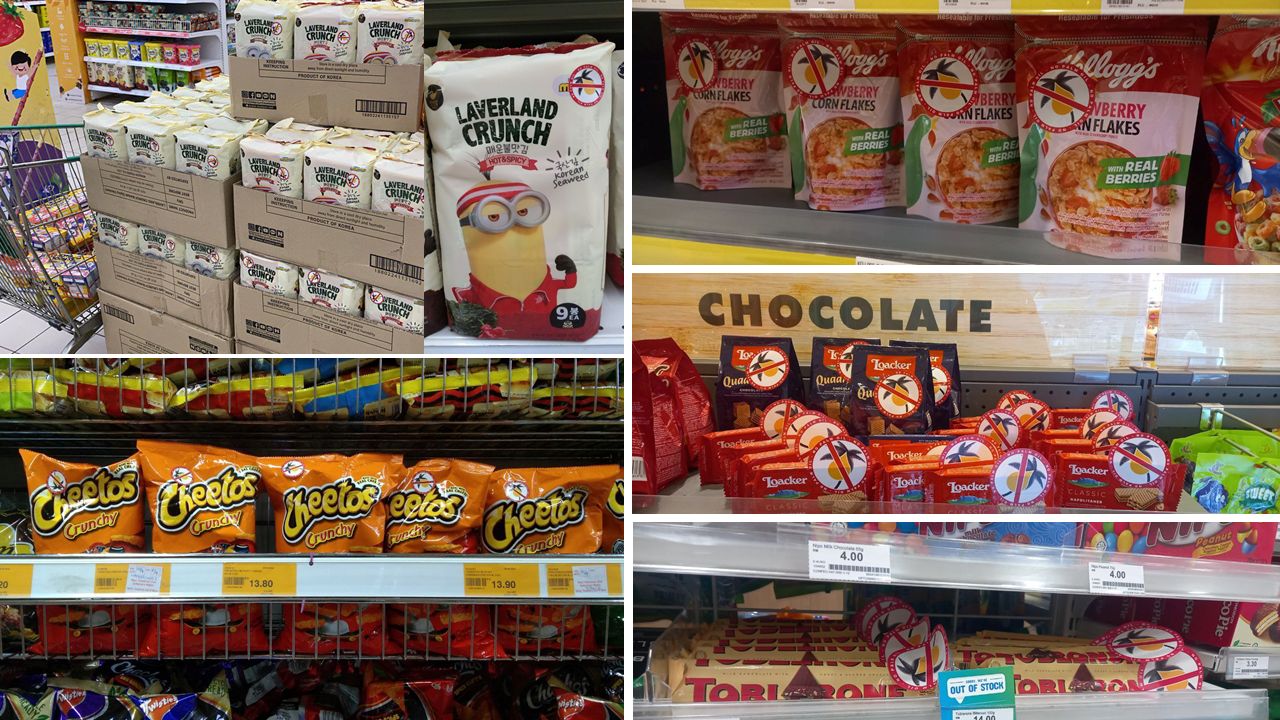PENANG, MALAYSIA / ACCESSWIRE / September 20, 2024 / In a surprising turn of events, "No Palm Oil" labelled products have made their way back onto the shelves of Malaysian supermarkets. Over the weekend, shoppers in Penang's Mydin, Giant, Sunshine, and Lotus's supermarkets discovered various products marked with "No Palm Oil" labels, raising eyebrows among consumers and industry experts alike.

Prominent international brands, including Loackers, Kellogg's, Laverland Crunch, and Cheetos, were among those found with the controversial labels, while local brands remained unaffected. The reappearance of these products is particularly striking given Malaysia's strict regulations prohibiting such labelling, enforced under the Trade Descriptions (Prohibition of Use of Statement, Expression or Indication) (Oil Palm Product and Palm Oil Goods) Regulations 2022.
Earlier this year, Malaysian authorities seized products valued at over RM32,000 that violated these regulations. Under the law, any statements or indications that discriminate against or encourage a boycott of palm oil products can lead to fines up to RM250,000 or a prison sentence of up to five years. This was installed to prevent discrimination against palm oil products.
The regulation has sparked significant backlash among Malaysian netizens, who argue that it undermines consumer rights.
Supporters of transparency in food labelling contend that such labels help consumers make informed choices, as palm oil can often be hidden under various names, including Stearic Acid, Glyceryl, and Elaeis Guineensis. There are health concerns associated with palm oil consumption, including its potential to raise cholesterol levels and increase the risk of cardiovascular disease. Additionally, mothers express worries about its impact on children's ability to absorb essential nutrients.
The environmental implications of palm oil production are equally alarming, contributing to an estimated 5% of tropical deforestation and 2.3% of global deforestation. According to the Orangutan Foundation International, between 1,000 to 5,000 orangutans lose their lives each year due to palm oil concessions.
As the world's second-largest palm oil producer after Indonesia, Malaysia contributes approximately 2.4% to its Gross Domestic Product (GDP) and supplies around one-third of the global palm oil market. While palm oil is a widely used ingredient in various food and cosmetic products, the recent resurfacing of "No Palm Oil" labels raises important questions about consumer rights, health, and environmental sustainability.
Media details:
Palm Oil Free Kitchen
Chloe Starr
Web URL: https://palmoilfreekitchen.com/
E-mail: chloe@palmoilkitchen.com
SOURCE: Palm Oil Free Kitchen
View the original press release on accesswire.com





